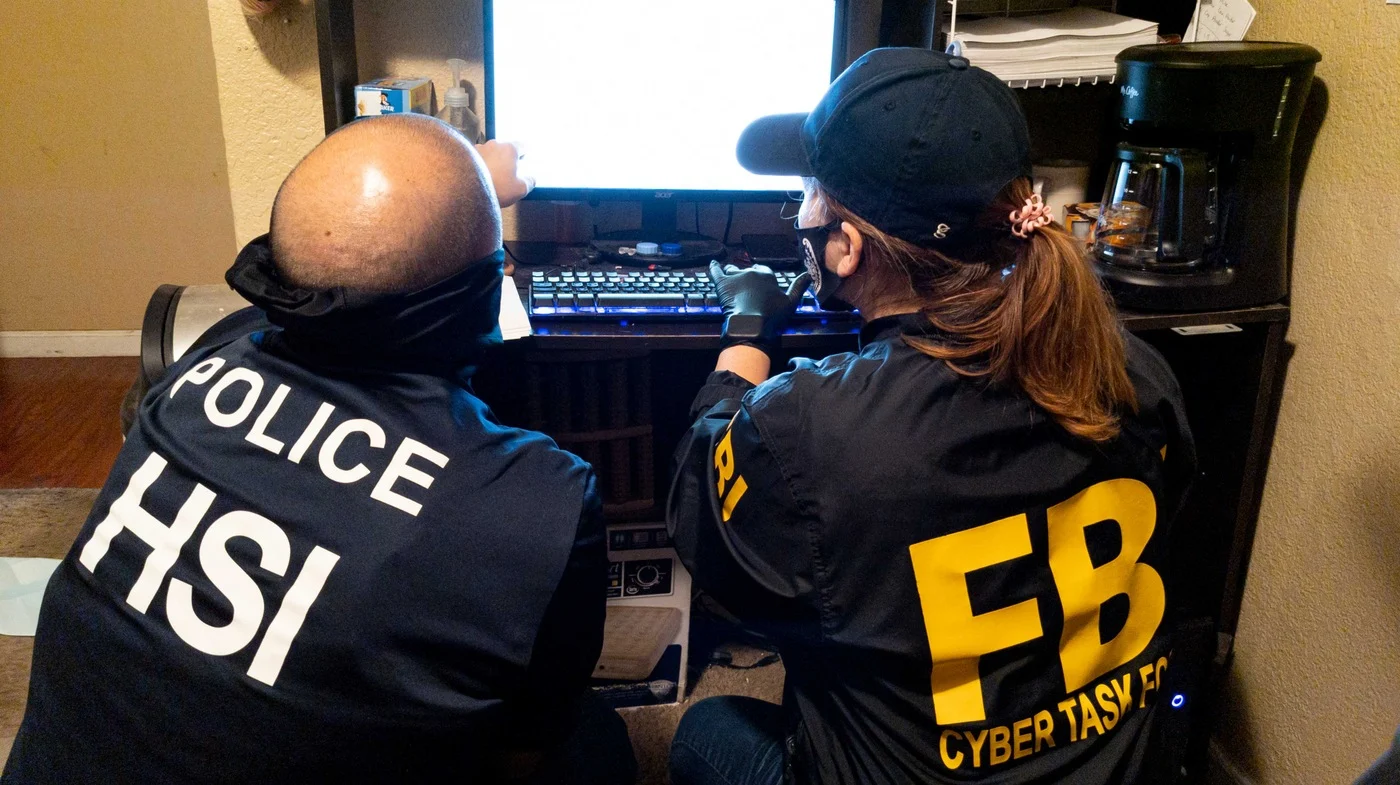
When the feds show up at your door, it can be a terrifying experience that leaves you overwhelmed and confused. Suddenly, your life seems to be turned upside down, and knowing what to expect can help ease some of the anxiety. At JeffMcKnightLaw, our team of experienced lawyers, though specializing in divorce, understands the gravity of such situations. Here’s what generally happens when federal agents take you into custody, and how you can protect your rights.
Based on my research, when the feds pick you up, you are taken into custody, booked, and then appear in court for charges. You may get bail or stay in detention until the trial. If found guilty, you face sentencing according to federal law.
Who Are the Federal Agents?
Federal agents are elite law enforcement professionals tasked with upholding national laws and tackling complex investigations that cross state lines.
To cut a long story short, federal agents enforce federal laws and investigate crimes under federal authority. They can work for different agencies like the FBI, DEA, ATF, Secret Service, and U.S. Marshals Service. These agents can arrest people, search properties, and collect evidence to build cases against those who break federal laws.
At the base, they go through a lot of training and must meet high standards to do their job well. Federal agents often work with other law enforcement at federal, state, and local levels to solve complex crimes that cross different areas. They handle various investigations, such as drug trafficking, terrorism, organized crime, cybercrime, and corruption. Their main goal is to uphold the law and keep Americans safe.
Initial Steps After Being Picked Up
After being picked up, staying calm can significantly boost your chances of a successful outcome.
When it comes down to it, make sure to grab your things and thank the person giving you a ride. If you have a specific place to go, tell the driver clearly. Always wear your seatbelt and follow traffic rules. Stay aware and be nice by chatting politely or offering to help pay for gas.
In essence, when you get to where you’re going, thank the driver again and take your stuff with you before getting out. If you might need a ride in the future, swap phone numbers with the driver to stay in touch. Be respectful and thankful the whole time.
Your Rights When Detained by Feds
When detained by federal authorities, you can invoke your right to remain silent and the right to an attorney.
Typically, you don’t have to answer any questions without your lawyer with you. You also have the right to say no to any searches of you or your belongings. If you’re arrested, you have the right to know what you’re being charged with. You have the right to a quick trial and to question people who speak against you. In short, you can also present evidence and call witnesses to help your case. You have the right to be treated fairly and not be subjected to harsh treatment while in custody. It’s important to stand up for your rights and talk to a lawyer as soon as possible if federal authorities detain you.
What to Expect During Federal Questioning
Federal questioning often involves federal agents delving deep into specific details to uncover critical facts.
Basically, federal questioning can cover a wide range of topics, from your personal background to specific details about any potential crimes or incidents under investigation. It’s important to answer these questions honestly and as accurately as you can.
You might need to provide documents or evidence to back up your answers. Being cooperative and straightforward with the authorities is very important. Lying or hiding information during federal questioning can lead to serious legal problems.
Honestly, before and during questioning, you might be informed of your rights, such as having a lawyer present. If you choose to have a lawyer, they can help you understand the process and make sure your rights are protected.
Try to stay calm and collected. If you get upset or argumentative, it could make things worse. If you have concerns or don’t know how to handle the questioning, it’s wise to get legal advice.
In short, it’s best to be honest, cooperative, and follow your lawyer’s advice during federal questioning to get the best result.

Legal Process After Federal Detention
Following federal detention, the individual will navigate a complex legal process, including arraignments and possible pretrial negotiations.
There’s a court session where the charges against the person are read out loud. The person then says if they are guilty, not guilty, or don’t want to contest the charges.
If the person says they are not guilty, a trial will be planned. Both the lawyers for the government and the lawyers for the person will show evidence and call witnesses to help their side. A judge or jury will then decide if the person is guilty based on the evidence.
If the person is found guilty, the judge will decide their punishment. This could be a fine, probation, community service, or jail time.
If the person is found not guilty, they will be let go. The legal process can be long and complicated, and it’s important to have a good lawyer.
The Takeaway
Being picked up by federal authorities can lead to a complex legal process, including arrest, interrogation, and possible charges. It is very important to remain silent and seek legal representation immediately.
What JeffMcKnightLaw is recommending to talk to is, cooperation with the authorities may lead to favorable outcomes, but it is important to understand and exercise your rights throughout the entire process.
References
- “The Last Lawyer: The Fight to Save Death Row Inmates” by John Temple, University of Michigan Press, John Temple
- “Federal Prosecution of Child Sex Exploitation Offenders” by United States Department of Justice, U.S. Department of Justice, United States Department of Justice
- “Inside the FBI” by Ronald Kessler, Pocket Books, Ronald Kessler






